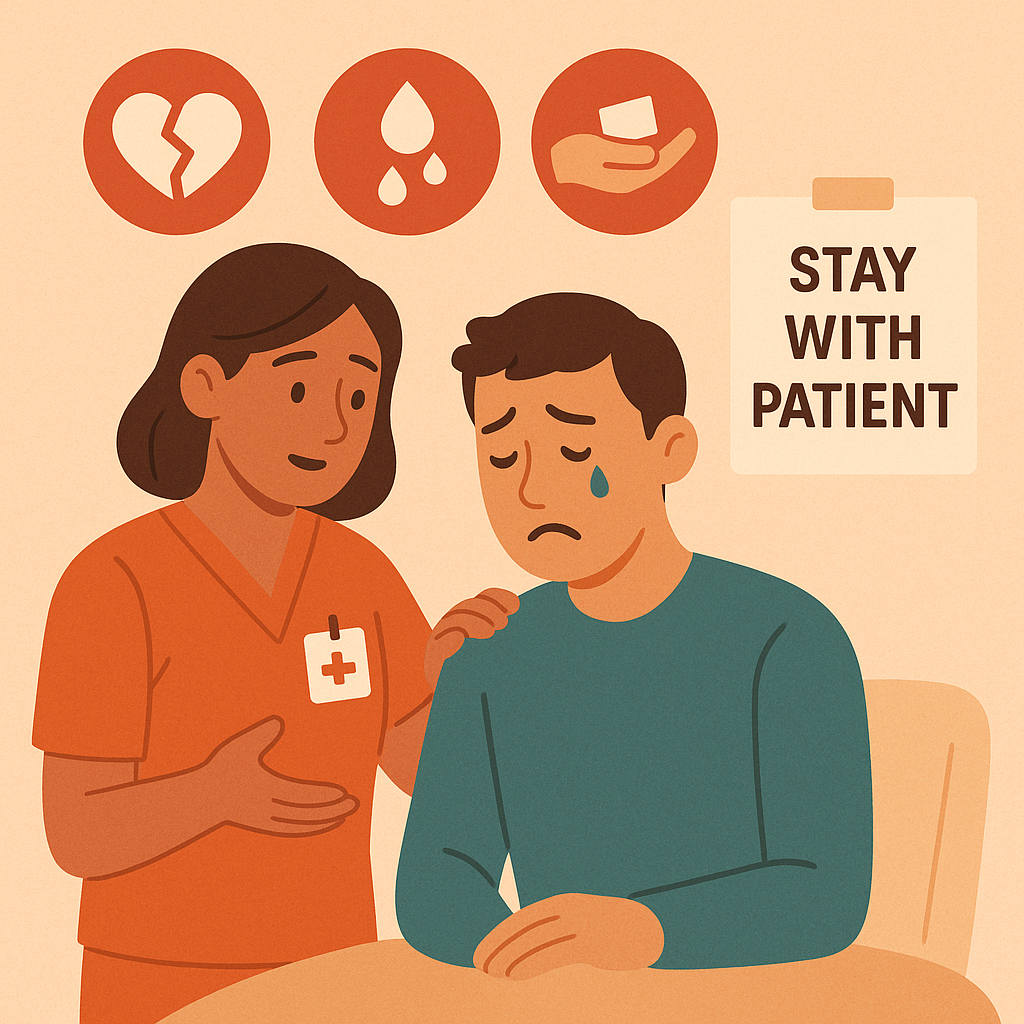Suicide is a serious, life-threatening emergency, and every nurse must know how to spot the warning signs and act fast. Moreover, understanding this topic is key for passing the NCLEX and building a strong nursing bundle for mental health nursing.
As a registered nurse (RN nurse), you may be the first person a patient confides in. Therefore, being prepared to respond calmly and effectively can truly save a life. This quick guide, in particular, will help you recognize risks, ask the right questions, and keep your patients safe.
📌 Why Suicide Assessment Matters in Nursing
To begin with, suicide remains one of the leading causes of death worldwide. In fact, patients with depression, substance abuse, chronic illness, or overwhelming stress are at higher risk. Because nurses often spend the most time with patients, they play a major role in prevention.
For the NCLEX, you should expect questions about assessing suicide risk and determining which interventions are safe and effective. In addition, understanding therapeutic communication principles will help you answer related questions correctly.
🧠 Warning Signs of Suicide: What Every RN Nurse Should Watch For
✅ Verbal Clues
- Talking about wanting to die or kill themselves.
- Saying things like “I can’t go on” or “Life isn’t worth living.”
- Furthermore, expressing hopelessness or feeling trapped.
✅ Behavioral Clues
- Giving away belongings.
- Suddenly visiting or calling loved ones to say goodbye.
- Additionally, increasing substance use or withdrawing from others.
- Interestingly, sudden calmness after severe depression may indicate they’ve decided to end their life.
✅ Emotional Clues
- Extreme mood swings.
- Rage or seeking revenge.
- Likewise, feelings of hopelessness, worthlessness, or guilt.
📋 High-Risk Factors to Remember (Good for NCLEX)
Registered nurses should always keep these factors in mind:
- Previous suicide attempt.
- Family history of suicide.
- Mental health disorders (depression, bipolar disorder, schizophrenia).
- Substance abuse.
- Chronic pain or terminal illness.
- Major life changes — divorce, job loss, grief.
Consequently, identifying multiple risk factors increases the urgency for intervention.
🔑 How to Assess Suicide Risk
As an RN nurse, you must ask direct and specific questions — don’t hesitate to bring up the topic. After all, asking about suicide does not cause it.
✅ Key questions to ask:
- “Are you thinking about hurting yourself?”
- “Do you have a plan?”
- “Do you have the means to carry out your plan?”
- “Have you ever tried to harm yourself before?”
Remember, asking these questions shows care and concern rather than judgment.
🩺 What to Do if a Patient Is at Risk
For both NCLEX and real-world practice:
✅ If the patient says YES — they have thoughts, a plan, or means:
- Stay with them — never leave them alone.
- Remove any dangerous objects (sharp items, belts, medications).
- Immediately, notify the healthcare team.
- Keep the environment safe.
- In addition, provide constant supervision if necessary.
✅ If the patient denies a plan but seems high-risk:
- Document everything clearly and objectively.
- Arrange a mental health consult.
- Meanwhile, continue to provide emotional support and check in frequently.
🗝️ Nursing Communication Tips
In suicide risk assessment, therapeutic communication is absolutely essential.
- Use a calm, non-judgmental tone.
- Moreover, listen carefully without interrupting.
- Avoid false reassurance.
- Finally, never promise to keep suicidal thoughts secret — safety must always come first.
📚 NCLEX and Nursing Bundle Pro Tip
For your NCLEX prep:
- Prioritize patient safety above all.
- Use direct, clear questions.
- While waiting for the mental health team, maintain close supervision.
- Add suicide prevention and therapeutic communication to your nursing bundle — these topics are tested often and crucial in real nursing practice.
✅ Key Takeaway
Every nurse must know the signs of suicide risk and, more importantly, how to act quickly. By staying alert, using clear communication, and following safety protocols, you can protect vulnerable patients and strengthen your NCLEX readiness.

